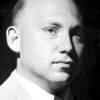Joshua Lederberg

Joshua Lederberg
Joshua Lederberg, ForMemRS was an American molecular biologist known for his work in microbial genetics, artificial intelligence, and the United States space program. He was 33 years old when he won the 1958 Nobel Prize in Physiology or Medicine for discovering that bacteria can mate and exchange genes. He shared the prize with Edward Tatum and George Beadle who won for their work with genetics...
NationalityAmerican
ProfessionScientist
Date of Birth23 May 1925
CountryUnited States of America
My ambitions were already very clearly fixed by the time I was 6 or 7.
We are all very individual. You have to find out what you can do best, and be self-conscious about that.
I was reading five or six years ahead of my grade during public school. I was pretty bored. I made a contract with some of my teachers that if I didn't ask too many questions, I could work in the back of the room.
I'm chairing a UNESCO committee on how to improve global Internet communications for science; help third-world people get onto the Net so they can be part of the process.
If you want to solve very complex problems, you will have to end up letting machines work out a lot of the details for themselves, and in ways that we don't understand what they are doing.
The central moral issue of science is that we do not have a science of peace and hardly know where to begin in building one.
So many of the things I've predicted were technologies that were just sitting right in front of us.
I did get a very fine education, and not just in science. It took some pressure on the part of my elders to convince me that I really should take an interest in humanities.
I believe I am a person with unusual talents. I think I'd be a liar or stupid if I were to deny that.
I certainly saw science as a kind of calling, and one with as much legitimacy as a religious calling.
A Swedish newspaper reporter called and said, You've been awarded the Prize. I was quite sure it was a practical joke.
By the time I was 12 or 13, I was studying biochemistry textbooks.
Everybody has to learn for the first time.
I was a bad practicing physician because I was never sure of the diagnosis or of the treatment.